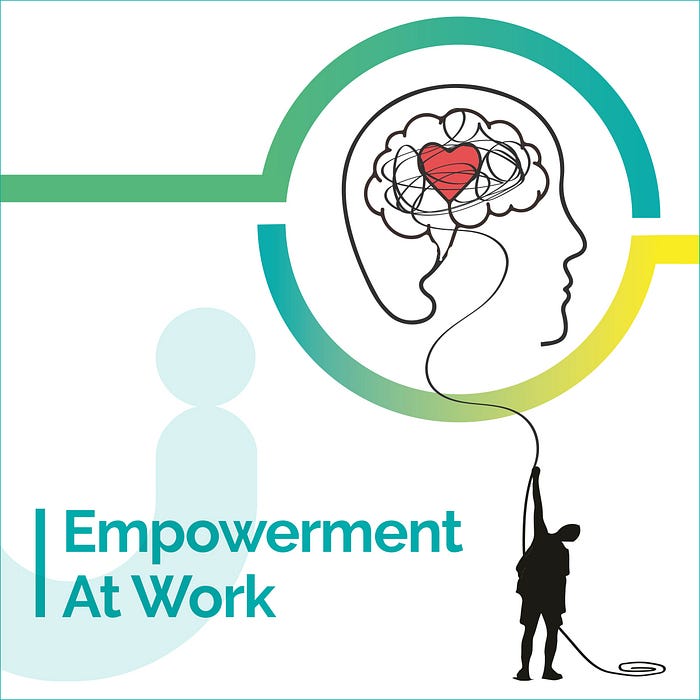
8 min read
·
1 day ago

👉💕Introduction: —
➡️👲Understanding Turmoil: — –
There are several dimensions that demonstrate conflict, from a psychologically stressful work environment to an emotional setback. It messes with our inner balance and invites us to have strength and flexibility within. Nonetheless, in native representation, catastrophe is how we are born.
➡️👲Embracing Resilience: —
Resilience, or just being in uncomfortable situations, is the key personality feature of people that even allows them to stand out in adverse conditions. It’s this power that makes me able to climb my way out of setbacks and learn and grow from those experiences. Finally, emerge out of it even stronger than before. You aren’t just by resilient. In fact, you get it through a positive outlook, making sure to seek support and evolution from your challenges.
➡️👲Harnessing Empowerment: — –
The phenomenon of empowerment leads to the volition to change and the growth of power to strive for better living conditions. This is a multi-layered process of realizing our own potential, identifying the targets that harmonize with our abilities, and following it with a passion for self-improvement.🤷♂️🤷♂️🤷♂️🤷♂️🤷♂️
It can seem that we are so vulnerable that no power can help us go through the hardest times. However, in the turbulence of our times, there is something precious, something that could bring about the transformation and development of the human being. The aim of this post is to show you practical tools for moving through obstacles in work as well as outside of work so that one can stand firm and grow all along. Life is really like a rollercoaster with its moments of happiness and sorrow. Every now and then, a heartbreaking tragedy might leave you stunned. Be it a hard-hitting press-up or a draining day at work, the key to dealing with such situations is to develop tactics that will help you overcome them and stay true to your goals. In this article, we’ll categorize empowering processes and indicate the most suitable ones for both professional and personal development, aiming for peak performance even in the hardest times. The “Path to Work and Personal Evolution” carries with it a unique set of strategies that assist the individual in confronting adversities and rising to higher levels of personal and work success. Here are some insights from the search results that can help you navigate through this journey.

Here are some insights from the search results that can help you navigate through this journey: — –
➡️💕1. Practice Self-Care
And when someone is going through a troubling period in their life, self-care is seldom the first thing on their mind — however, taking care of one’s mental and physical health is of utmost importance at those times. Allocate some time to do things that bring you happiness and relaxation, such as reading, working, or just spending quality time with family and friends. Through constant attention to self-care, you will rise above the difficulties of life and deal with its stresses efficiently and with a positive attitude.
➡️💕2. Set Realistic Goals
Unrealistic goal creation will, consequently, require the realization of the goals, which is accompanied by irritation and dismay when the goals are not accomplished. As you define those goals, make sure they are clear and specific, and align with your personal values and priorities. Smash high-level goals into smaller, effortlessly performed steps in order to sustain momentum and energy.
➡️💕3. The Social Network
You feel better the more people you are surrounded by who can support you when times are hard. Establish a resourceful network of friends, relatives, or colleagues that can be helpful when needed, especially as a source of emotional support, advice, or someone to talk to. You shouldn’t be hesitant to seek consultancy when facing difficulties and, in the same way, you have to be willing to lend a hand when others are having troubles.
➡️💕4. Practice Mindfulness
Mindfulness is the pursuit of noticing what is happening now in the eye of the observer without judgment. It could contribute to your skill of being totally present and curtail to some extent the feelings of anxiety and stress. Include mindfulness activities (e.g. meditation and deep breathing) in your daily routine to enable you to be mentally clear and strengthen your resilience.
➡️💕5. Embrace Failure
It is true that failure is part of progress. Instead of perceiving failure as a negative outcome, it is a moment that can be used to learn and improve a step further. Think about what failed and why it happened. Perform such examinations of failures to apply those lessons to future problems.

➡️💕6. Encourage the Keep on Learning Mentality
The growth mindset is a state of mind that supposes that skills and intelligence can be developed through diligence and effort, even if they have been limited before. Develop a growth mindset where, instead of giving up on difficulties, one accepts them and instead learns from failures and stays focused on continuous learning and development.
➡️💕7. Practice Gratitude
Have patience with yourself by being more grateful each day to take your mind of harboring negative thoughts and instead fill it with all that is wonderful in your life. Be sure to take a few minutes every day for some self-reflection. Even the smallest things can make you grateful. The key is not to discount them. This is one strategy, which is to keep you positive and to make you aware of what’s good in your life.
➡️💕8. Stay Organized
Having proper organization allows us to understand what we have to do and do it properly, thus giving us a lesser chance of feeling overwhelmed and maximizing our productivity. Engage with tools such as the aforementioned due lists, calendars, or project management applications to remain organized and on schedule. Firstly, recycle the important and then urgent ones in the task list and divide larger projects into smaller, logical tasks to achieve a manageable task.
➡️💕9. Seek Professional Help
If you are feeling repeatedly anxious, depressed, or overwhelmed, stop by yourself to find and seek help from a professional. A mental health specialist will guide and monitor you throughout your journey and will offer you custom tools and techniques helpful in dealing with unpleasant and stressful moments.
➡️💕10. Celebrate Your Successes
The achievement of your little victories, even if they are at a minuscule level, can itself enhance your self-confidence and self-belief. Build on yourself and treat yourself to the recognition deserved for your prosperities and victories; this will become the motivation for you to keep moving on with zeal and passion.

👉💕Conclusion
Step forward and strive through difficult times by devoting time to oneself, setting goals, and utilizing available support resources. This strategy is a powerful tool for managing your work. As well as personal life that you can incorporate into your daily life readily and navigate the challenges well. Keep in mind the time for yourself. Create your plans — these should be achievable and step-by-step. Build a supportive system; the last, but by no means least, one is to better control your state and stay focused on your goals. It proves that nothing is impossible, and when you work to eliminate that obstacle, you will clearly be able to reach your targets.
➡️FAQ💕: — —
What strategies can I use to survive, and indeed thrive, in the face of a variety of workplace issues?
➡️If you want to stand your ground against job challenges, it should be your priority to take care of yourself, set the right limits, and feel free to ask for support from your team members or seniors. Likewise, understanding flexibility, along with continuous learning, can enable an individual to adjust to an ever-changing situation.
2. Can you imagine the most useful self-care tips to deal with stress at the office?
➡️You can practice different actions of self-care to handle work stress. They include going for short breaks at work, doing things that are heartwarming and pleasurable, and practicing meditation or mindfulness. Also, ensure that your work life and social life don’t clash.
3. How do I develop resilience in the context of personal failure?
➡️A process of strengthening is where the individual builds up a positive mindset, reaches out to friends and family when needed, and develops on the dark side. Moreover, building realistic targets and having the ability to be supportive of yourself may demonstrate even more resilience.
4. SMART goals are an effective guidance tool for personal development, that can facilitate the manifestation of expectations.
➡️Smart goals are objectives that are considered to be specific, measurable, achievable, relevant, and time-bound. They guide people to determine their goals and how to record achievements related to their professional growth. Through this, people are able to establish an objective and rewarding roadmap for their future endeavors. Making large goals small and accomplishable by dividing them into smaller breakthrough steps has the potential to translate into their completion.
5. How can I be able to draw clear lines between personal relationships and professional life?
➡️ Creating far-set limits raises them first, outlining your priorities, stating your demands assertively, and refusing to say yes when you need to. Taking time off for oneself and imagining relaxing activities may also aid the process regarding the assets and avoid quandaries of this sort.
6. What is the importance of thankfulness, and how does it play as their catalyst for self-worth development?
➡️ Desiring contentment or appreciating what one has is among the most effortless and costless methods to train a person to focus only on the benefits instead of a problem. Understanding the sunnier side of life, enjoying what is good, and appreciating what is valuable are key factors for resilience-building, mental well-being, improvement, and abundance.
7. How to transit the turbulence of uncertainty and to endure change in your job?
➡️The traffic control of unfamiliarity and acceptance of transformation calls for adaptability, flexibility, and a growth mindset. Seeing challenges as proud opportunities for progress, keeping a curiosity, and receiving feedback are the ways that help cope with career transition issues.
8. What are some successful methods in the sphere of strategic building up positive relationships in the workplace?
➡️ Building good working relationships implies creating an atmosphere of open communication, understanding, and equality. Showing empathy, inviting the participation of others at times of difficulty, and rewarding peers collectively for achieving common goals are the platforms for developing a family-like bond.
9. How do you overcome the fear of failure and take part in some actions that will help in personal growth?
➡️Overcoming the fear of failure is done by reshaping losses as learning opportunities and setting accurate objectives. It is also achieved through celebrating progress, despite the smallness of those achievements. Getting guidance or assistance from mentors or peers and working on individual growth as opposed to striving for perfection has to go along with avoiding fear and making positive steps toward excellence.

Leave a comment